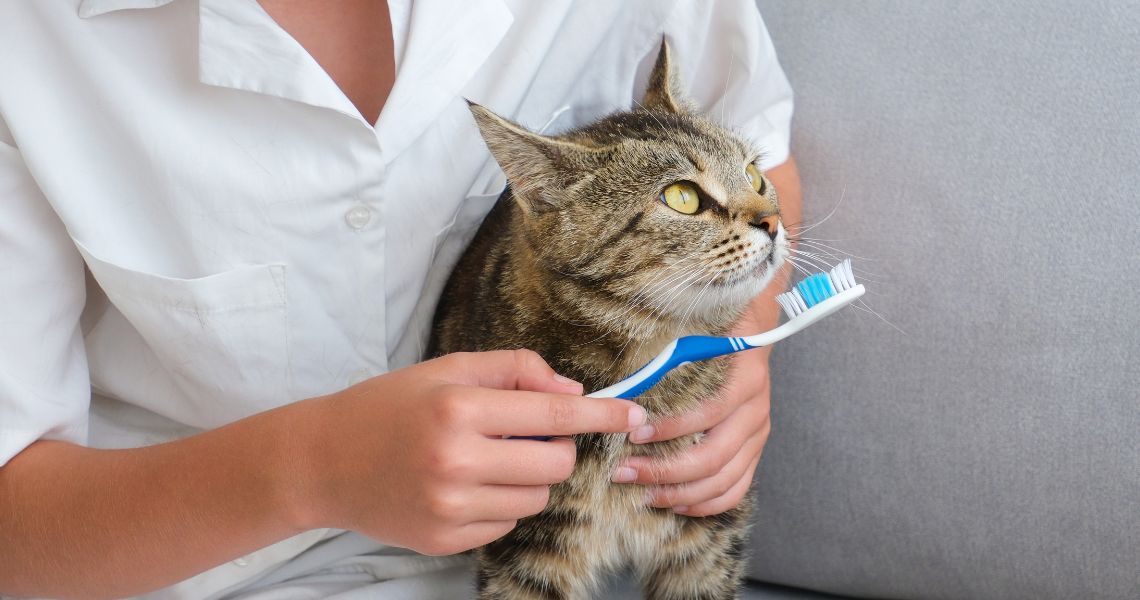Hygiene in cats: everything you need to know
Learn how to keep your cat clean with these practical tips. Looking after their skin, teeth and general care. Guarantee your cat’s well-being.

Cats are known for their meticulous personal hygiene but, as the people responsible for their well-being, we must make sure that their hygiene routine is comprehensive and appropriate. From looking after their coat, to dental hygiene, responsible feeding and proper cleaning of their eyes and ears, every aspect is vital in order to keep your cat healthy and comfortable.
Your cat’s coat hygiene: How to keep it clean?
Your cat’s coat gives off a first impression and is a protective barrier against external agents. Although cats clean themselves constantly, it’s vital to complement this with some additional care:
- Regular brushing. Short haired cats require weekly brushing, while long haired cats need attention every day to prevent tangles and hair balls. Use an appropriate comb for your cat’s type of fur.
- Occasional baths. Although it isn’t necessary to wash cats regularly, some may benefit from an occasional bath, particularly if their coat is very dirty or if they suffer from certain skin conditions.
- Hydration. Make sure your cat has constant access to fresh water. Hydration is vital in order to ensure their skin and coat stay healthy.
Dental hygiene in cats: keys for a healthy mouth
Dental hygiene in cats is fundamental for their overall well-being. The build up of plaque and tartar can lead to painful dental diseases that are expensive to treat. To maintain ideal dental hygiene in cats, you should do the following:
- Regular brushing. You should ideally brush your cat's teeth at least two or three times per week with a brush and toothpaste specifically for cats.
- Appropriate diet. A balanced diet and use of chewable toys can help to reduce the formation of plaque.
- Veterinary check ups. Yearly dental checks are recommended to detect and treat problems in a timely manner.

Eye and ear hygiene: preventing common infections
Cats’ eyes and ears are sensitive areas that require special attention to prevent infections.
- Eyes. If you notice a discharge or redness, clean them gently with a damp cloth and consult a vet if symptoms persist.
- Ears. Inspect them regularly, looking for dirt, excess wax or signs of infection. Clean the entrance to the ear canal with a damp cloth and avoid inserting objects into the ears.
How often should you wash your cat?
Cats are very clean animals and it isn’t generally necessary to bathe them regularly. However, there are situations in which a bath may be necessary:
- Long haired cats. They may benefit from occasional baths to keep their coat clean and tangle free.
- Cats with skin conditions. If your cat suffers from dermatological problems, the vet may recommend baths using specific products.
- Very dirty cats. If your cat gets dirty with hard-to-remove substances, a bath may be essential.
Maintaining appropriate hygiene in cats is vital for their health and wellness. With a regular care routine and paying attention to your cat's signals, you will be able to ensure that your furry friend enjoys a long and healthy life.
What do you think about?
Share comments, opinions and tricks with the Community






